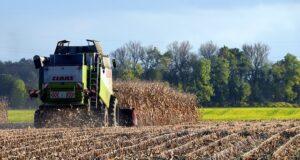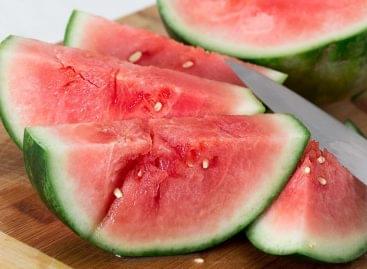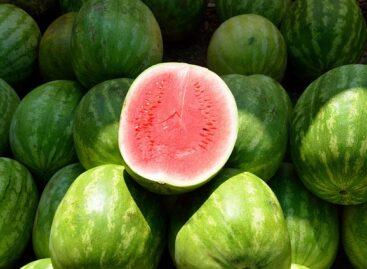The harvest has ended in Békés County
The harvest in Békés county has been completed, the harvest is better compared to last year’s drought year, but falls short of expectations – the Békés County Directorate of the National Chamber of Agrarian Economy informed MTI on Tuesday.

(Photo: Pixabay)
554,804 tons of winter wheat were harvested from 106,693 hectares, the average yield is 5.2 tons. 237,520 tons of autumn barley went into warehouses from 45,677 hectares, the yield average is the same as that of wheat, which is better than last year, but falls short of expectations, the hectoliter weight is very bad – it was said at the meeting of the harvest coordination committee. Autumn cabbage canola was harvested from 10,429 hectares this year; the county yield average was 3.1 tons per hectare, the total yield was 33,373 tons.
The yield and quality have also improved
From the member cooperatives of the Békés County Agricultural Association in northern Békés, in the case of winter wheat, reports were received of better yield averages towards the end of the harvest, and the quality also improved: 60-40 percent in favor of edible wheat, they said. Rye was grown on 704 hectares, but in Békés it is mostly sown as fallow and harvested green. In Békés county, triticale was also grown on 3,661 hectares, the total yield was 16,475 tons; 896 hectares of spring barley, harvested with an average yield of 2.5 tonnes per hectare; the oats sown on 1,734 hectares yielded 6,069 tons; and 3,584 tons of seed peas were also harvested from 1,629 hectares.
According to experts, the purchase prices are low
For autumn barley, HUF 40-45 thousand per ton, for wheat 55-62 thousand HUF, depending on quality. A ton of rapeseed is typically bought for HUF 140-160 thousand – it was announced at the committee meeting. According to experts, a good part of the grains must be sold in order to avoid storage problems during the sunflower and corn harvest.
Sunflowers and corn are showing a good picture for the time being, but the county is causing more and more damage from field beetles
According to the report of the main village farmer Szabolcs Buka, the destruction is greater in the Mezőhegyes-Medgyesegyháza-Nagykamarás-Nagyszénás area, “there was a farmer whose 10-hectare wheat field was eaten by field voles”, he said. Zoltán Fári, the president of the Békés County Chamber of Plant Protection Engineers and Phytosanitaries, said that field voles typically breed in four-year cycles, and already in the fall it was apparent that the problem mainly affects the central and southern parts of Békés. More and more people are participating in the Agricultural Environmental Management Program (AKG), the criterion of which is that it is not really possible to exterminate rodents that serve as food for birds of prey. Since the field vole has multiplied to such an extent that it crumbles the corn kernels and chews the stalks of the sunflower, the National Food Chain Safety Office (Nébih) granted an emergency permit for the use of a rodenticide under strict conditions.
MTI
Related news
Drought, technological competition and collaboration: the domestic melon season has begun
The 2025 Hungarian melon season starts amidst serious challenges: the…
Read more >Hungarian melons can regain their lost export markets, according to producer associations
Hungarian melons can regain their export markets, a third of…
Read more >Grain of adequate quantity and quality produced
Grain of adequate quantity and quality was produced this year;…
Read more >Related news
Drought, technological competition and collaboration: the domestic melon season has begun
The 2025 Hungarian melon season starts amidst serious challenges: the…
Read more >Leadership change at Fornetti: Nándor Szabó is the new Managing Director
Nándor Szabó will take on the role of CEO of…
Read more >Change in Zwack management: Csaba Belovai is the new CEO of Zwack Unicum Plc.
According to the decision of the owners of Zwack Unicum…
Read more >





